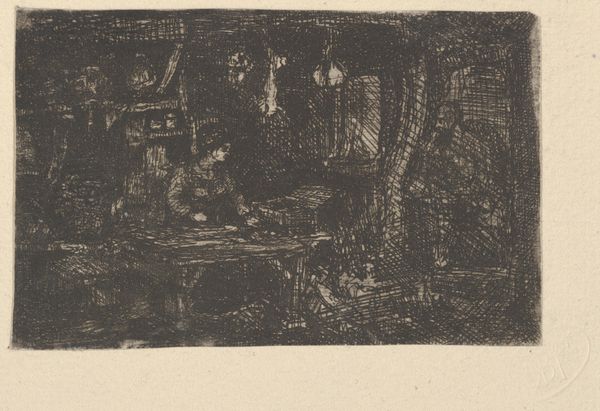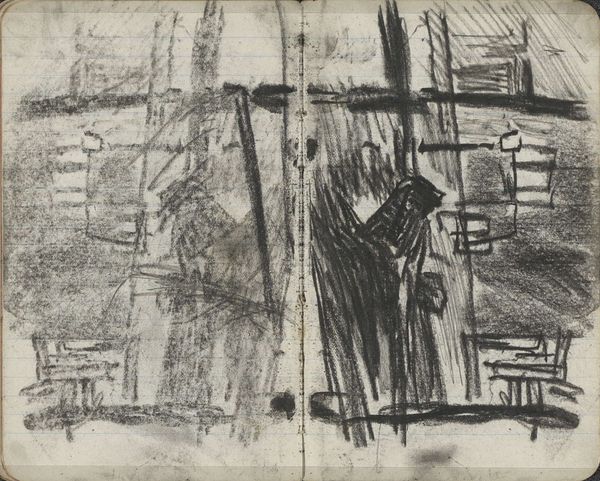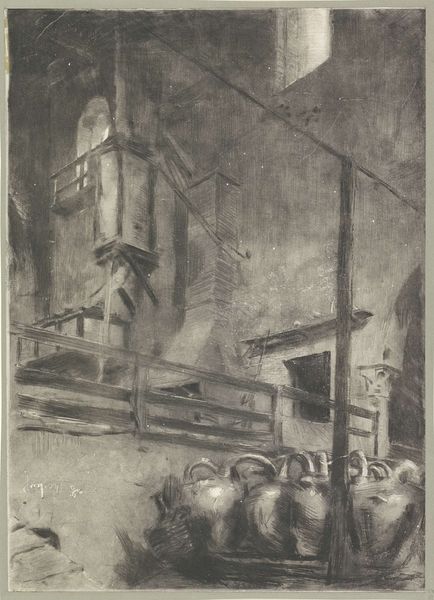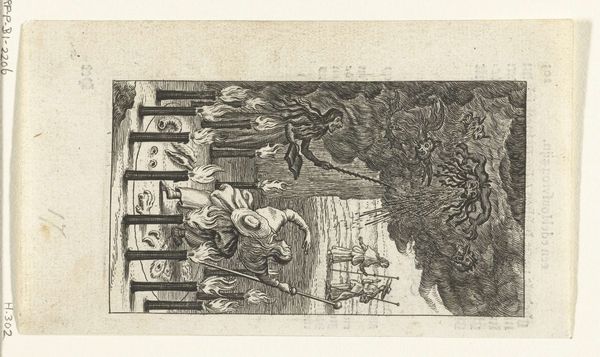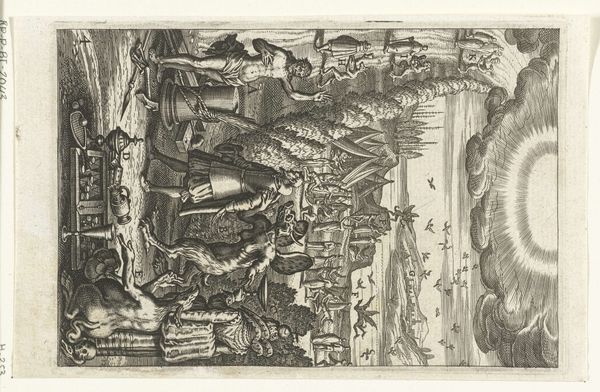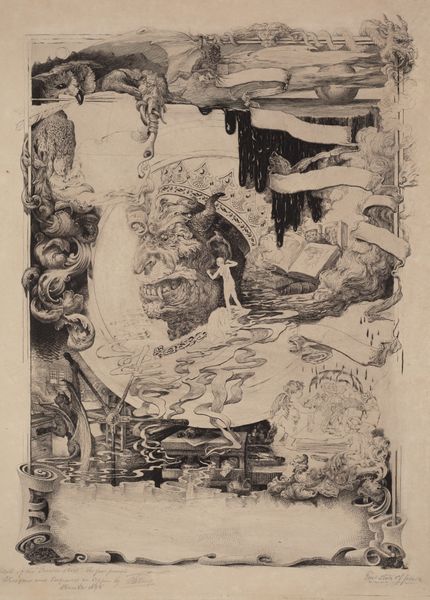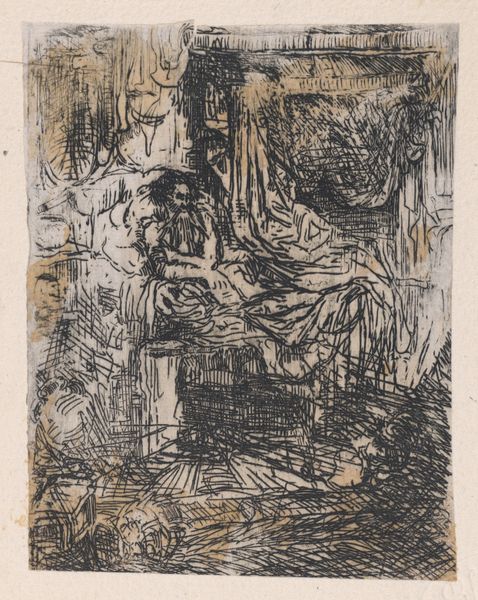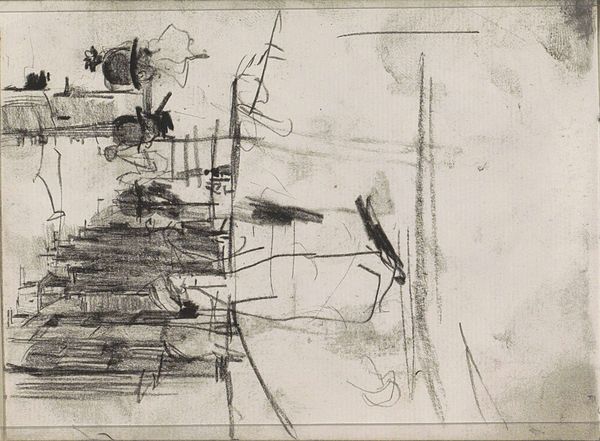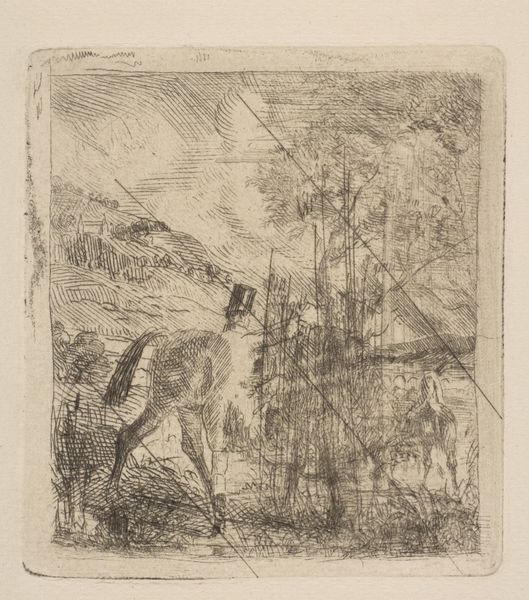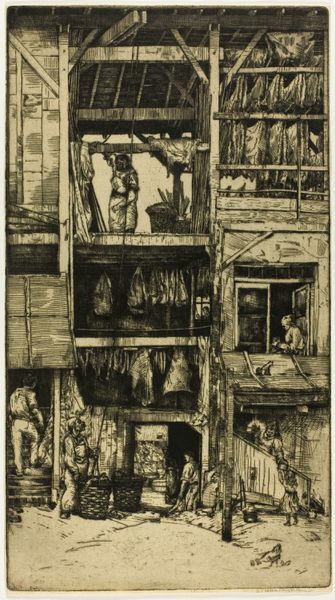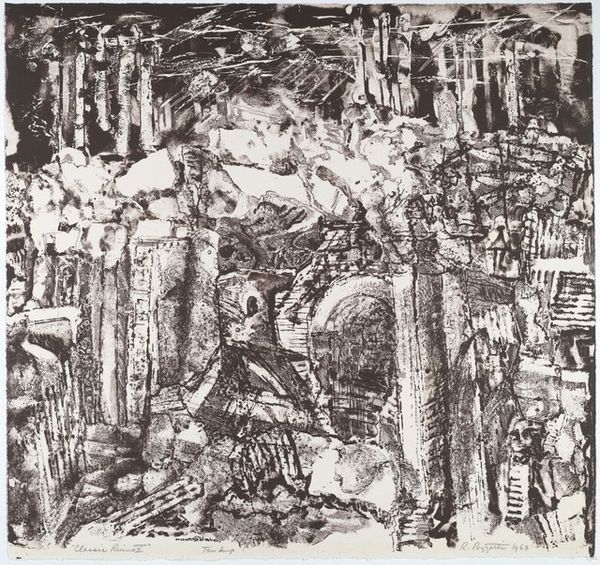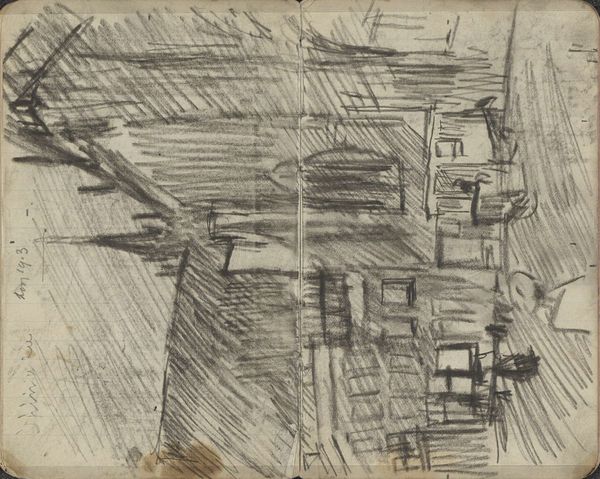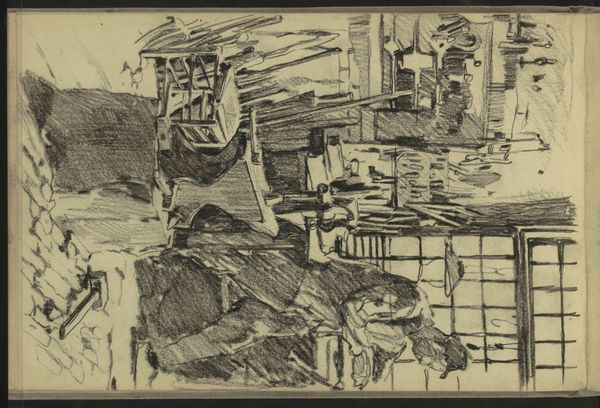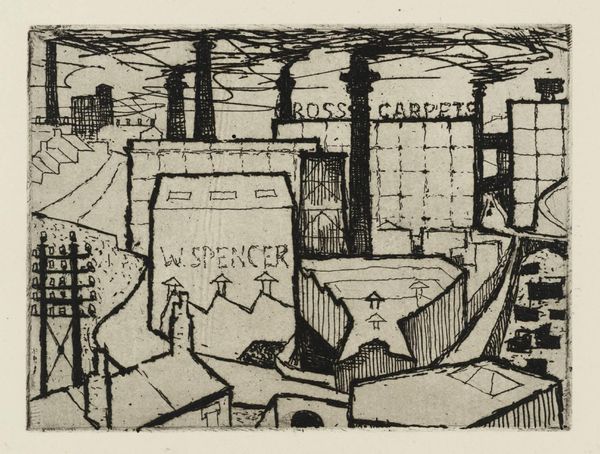
drawing, print, etching, paper
#
drawing
# print
#
impressionism
#
etching
#
landscape
#
paper
Dimensions: 80 × 120 mm (image/plate); 86 × 120 mm (sheet, with signature tab)
Copyright: Public Domain
Curator: Looking at this work, I’m instantly transported to a blustery day on the Thames. There’s a busyness and vibrancy captured despite the monochrome palette. Editor: Indeed. What we have here is Theodore Roussel’s etching entitled "Chelsea Regatta," likely completed between 1888 and 1889. It resides today at The Art Institute of Chicago. A master printmaker, Roussel captured a very particular vision of London life. Curator: It’s incredibly dense, almost claustrophobic in its detail, wouldn’t you say? Masses of people, a sea of lines mimicking both the crowd and the water. You can almost hear the excited chatter and smell the river air. It's not simply documenting, is it? There's almost a nervous energy… Editor: Certainly not simply documentary! Roussel very consciously situated himself in the debates around Aestheticism and “art for art's sake.” He moved away from straightforward topographical prints. This depiction of a public event is far more focused on conveying the atmosphere. Look how he uses etching techniques, blurring lines, varying the depth of the blacks, to evoke a sensory experience. He's interested in translating fleeting, ephemeral feelings. Curator: Yes, the foreground feels intimate, almost as if we are right there, observing those children – but beyond that is such intentional abstraction... It pulls me right in. What's striking, considering its age, is that this treatment feels strikingly modern! It pushes against tradition in ways that feel so prescient. Editor: Absolutely. Roussel was working alongside Whistler at a time when printmaking was being elevated to the level of high art. "Chelsea Regatta," beyond its impressionistic leanings, exemplifies the very conscious artistic choices being made within the etching medium itself. There's an inherent politics to this; a deliberate sidestepping of academic convention. Curator: Seeing "Chelsea Regatta" makes me feel that even everyday scenes carry their own beauty. Roussel captured that ephemeral moment with such unique artistry and attention to craft! Editor: Absolutely, and hopefully it provides some insight into the way art both reflects and actively shapes the very culture it springs from.
Comments
No comments
Be the first to comment and join the conversation on the ultimate creative platform.
